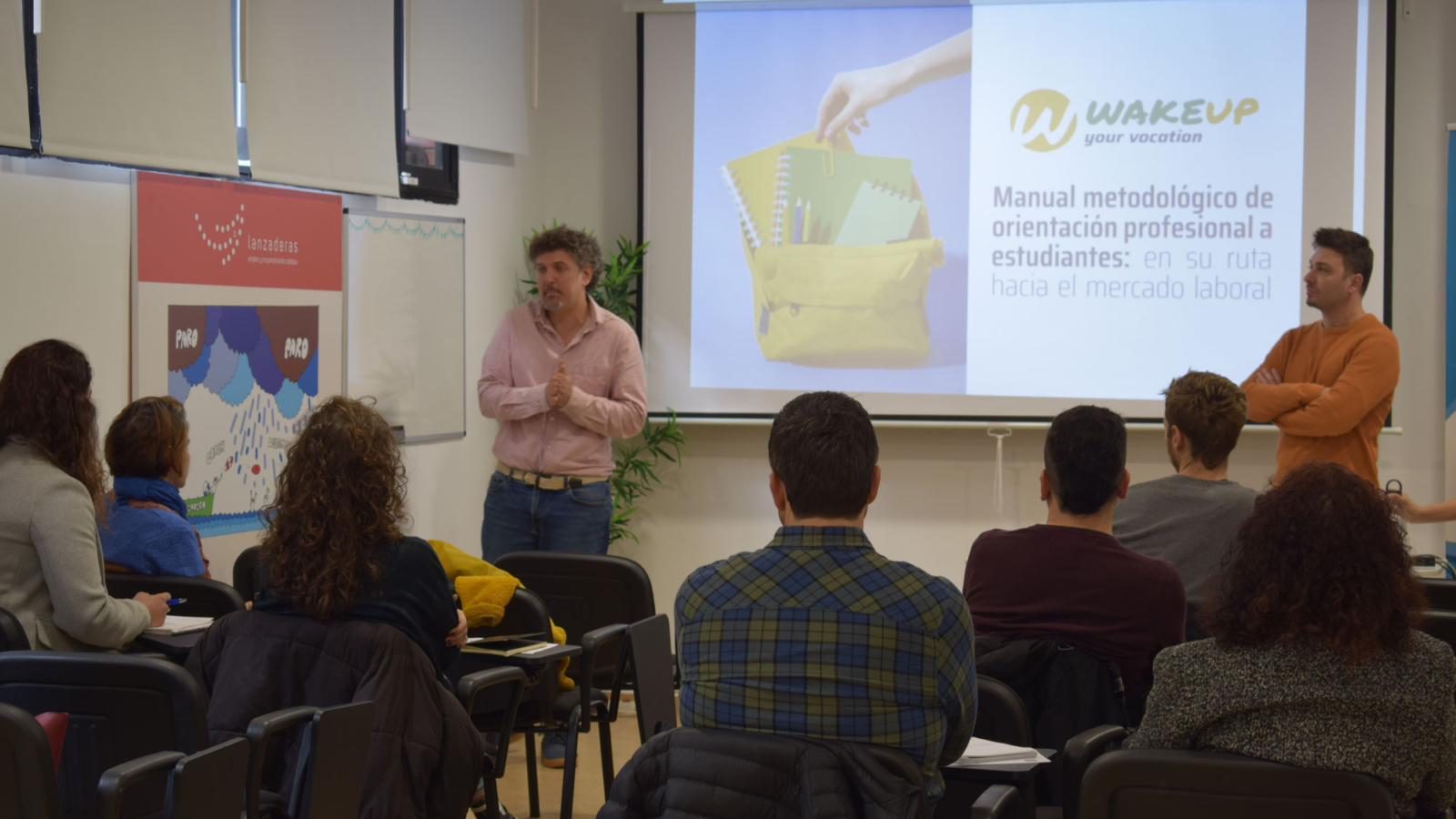WAKE UP YOUR VOCATION, part of the Erasmus+ program, held today in Madrid a workshop with practical tools for career guidance in education. It has presented its methodological manual, with a route of activities to be adapted by teachers in Europe
This initiative, which unites Spain, Italy, Belgium and Croatia, involves schools, students, parents and public and private entities to reduce the gap between the education system and the job market, and promote the employability of young people
In addition to the methodological manual, professionals from the Education and Third Sector have learned about the studies carried out around this project and have attended a practical session to learn about the most current techniques and how to adapt to emerging jobs
‘WAKE UP YOUR VOCATION’ held today the Workshop ‘Practical tools for career guidance to students’, where the mismatch between the needs and opportunities for career guidance and the transition to the job market of European youth was highlighted. It presented its methodological manual, the study carried out as a basis for the document, as well as recommendations to create the most favorable conditions and improve the system.
Professionals from the education sector and the third sector attended this event, which took place at the headquarters of the Santa María la Real Foundation in Madrid, to improve career guidance for its students and support them in their professional future.
‘WAKE UP YOUR VOCATION’ is a European initiative integrated into the Erasmus+ 2021-2027 program that seeks to reduce the gap between the educational system and the current job market involving young people between the ages of 12 and 18, teachers, parents and tutors, and public entities and private. This European training project is led by the Santa María la Real Foundation, through its Area of Employment and Entrepreneurship (Spain), and together with it the Agenzia regionale per il lavoro la formazione e l’accreditamento (Italy), Goethe-Institut e.V. (Belgium) and Zaklada Znanje na djelu (Croatia).
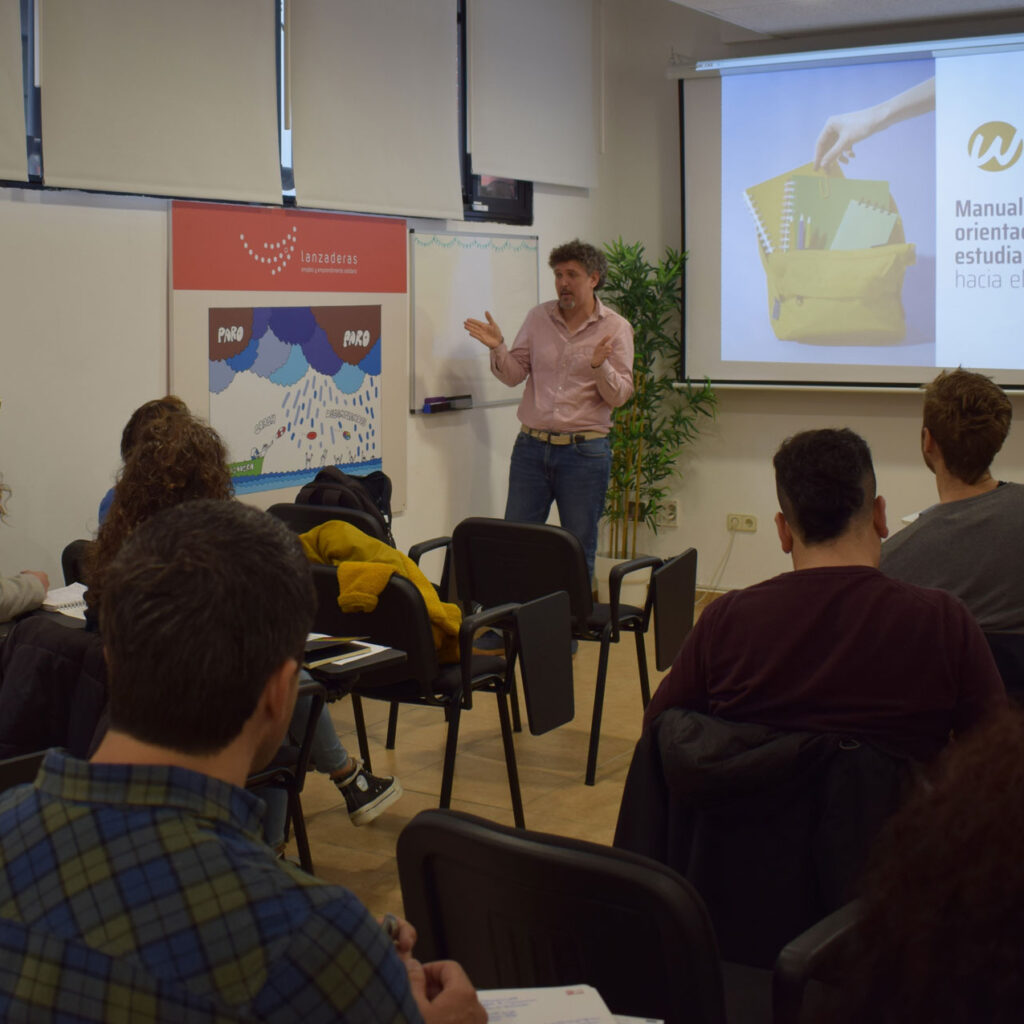
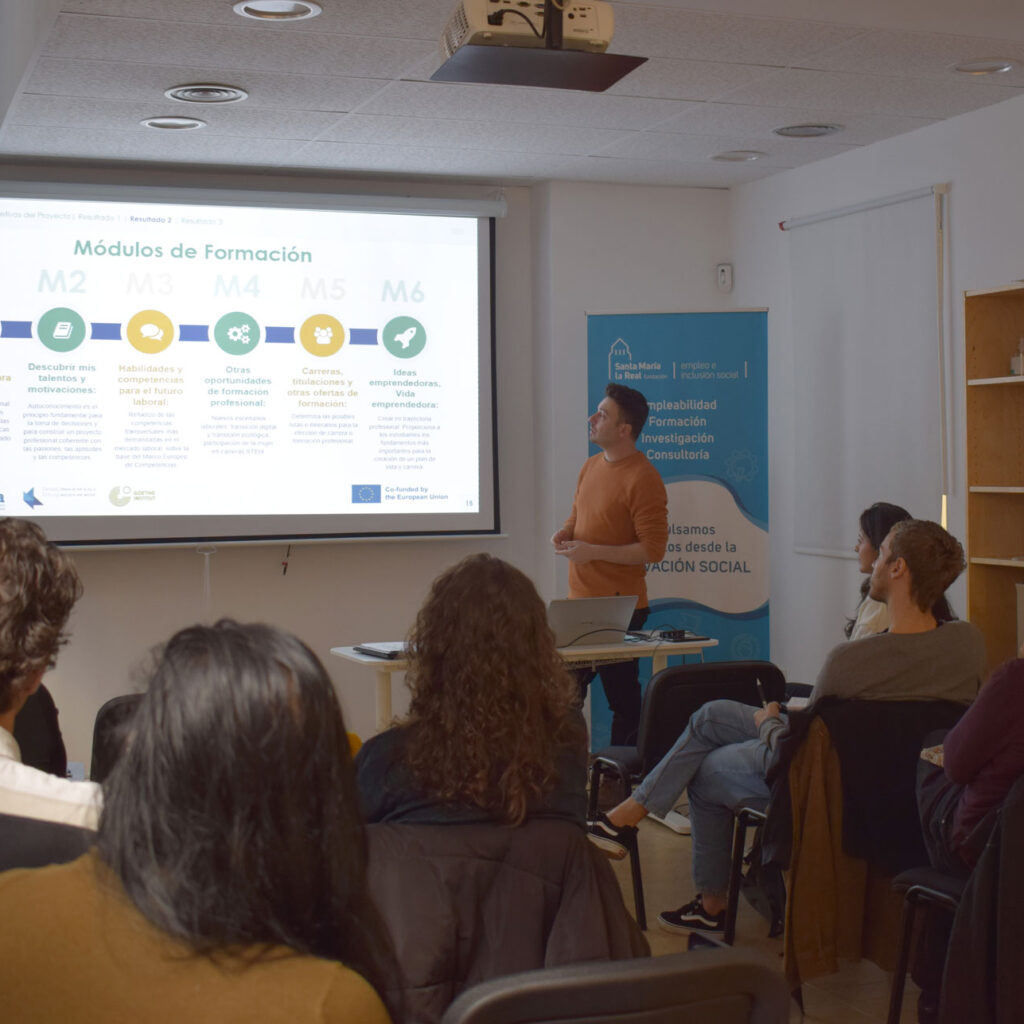
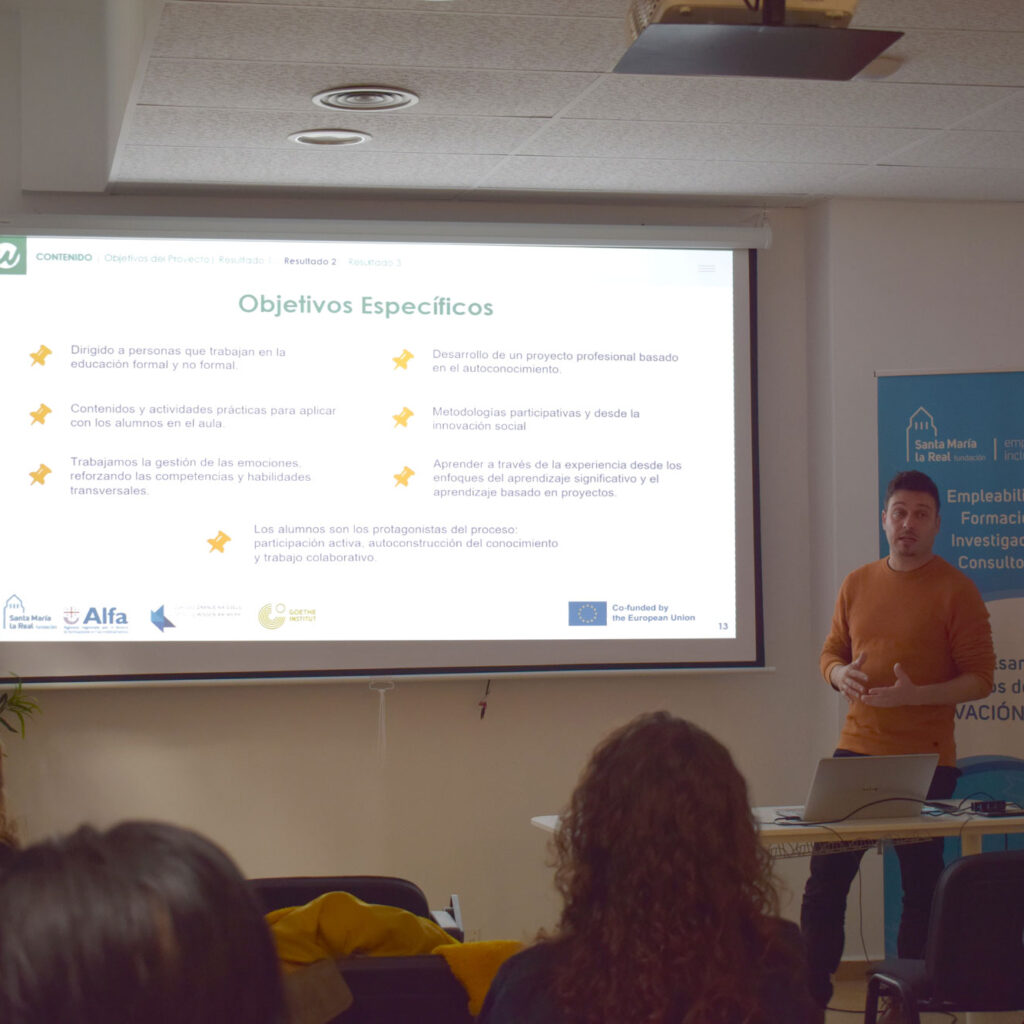
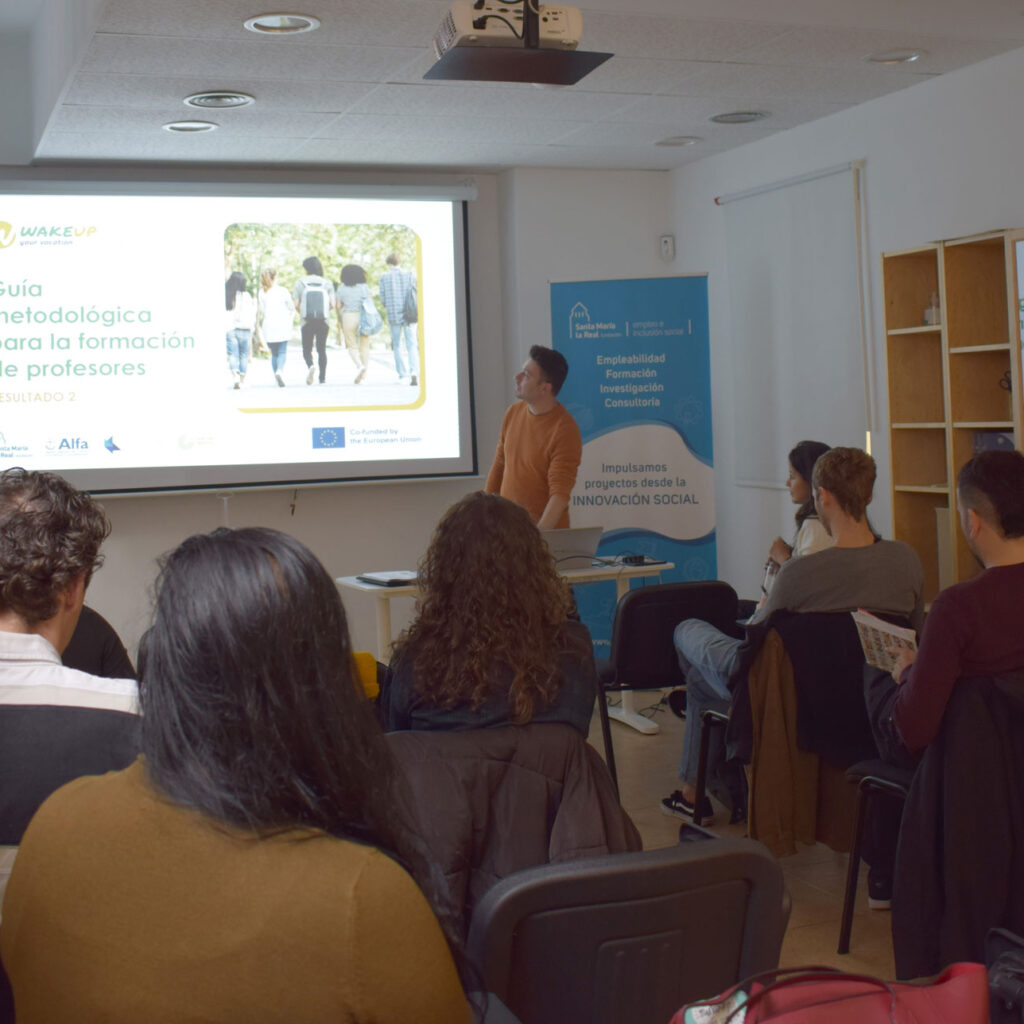
Presentation of the methodological manual
One of the main points of interest of the event was the presentation of the ‘Methodological Manual for professional orientation: on route to the job market’, developed in recent months by the project team at Fundación Santa María la Real, and with a version in four languages. It was created as a proposal to address the vulnerabilities of the young population to the demands of the job market and its activities are designed for teachers to adapt and organize them according to classroom conditions, time, characteristics and the number of students in the group.
The aim of this manual, which consists of six modules, was from the outset to become a tool that can be adapted to the social and cultural conditions of schools in Europe. It is aimed at people working in formal and non-formal education and includes participatory methodologies, based on social innovation. In its testing phase, 479 families, nearly 1,000 young people and 152 teachers participated, involving more than 30 educational centers. The manual is already available at the project website, in ‘Publications’.
The development of the handbook was based on a series of workshops on career guidance, in online and face-to-face format, in coordination with educational centers in Spain, Italy and Croatia. More than 750 students, 100 families and 30 teachers took part in the workshops, which focused on skills and competencies for the future of employment, the current job market situation and new positions linked to digital transformation and green jobs.
Expectations and recommendations
In order to establish a valuable basis for the drafting of the methodological manual, the ‘Study on Visions and Expectations’ was carried out in 2022, with the participation of more than 2,800 students, parents and teachers surveyed, and was also presented today at the event.
One of the main findings is the aforementioned mismatch, with parents preferring to advise rather than impose decisions on their children, and students primarily valuing salary potential when looking for a job. Although the influence of gender is not recognized by respondents, gender biases in career decision making are detected in other responses. In addition, obstacles such as lack of up-to-date information on the job market, time and resource constraints, as well as insufficient training of teachers and guidance professionals are identified.
On the other hand, another document has been prepared with European and country-specific policy recommendations (Italy, Croatia, Spain) for the transition of young people to a new job market. It points towards a greater emphasis on educational policies and more investments in the educational field in the European Union. It will be presented this Thursday, October 26, at a face-to-face event in Brussels, which can be followed online. Registration: https://goethe-institut.zoom.us/meeting/register/tZIqf-qspzgsGdecpDkvM0aU0Jf4t2BJOsif
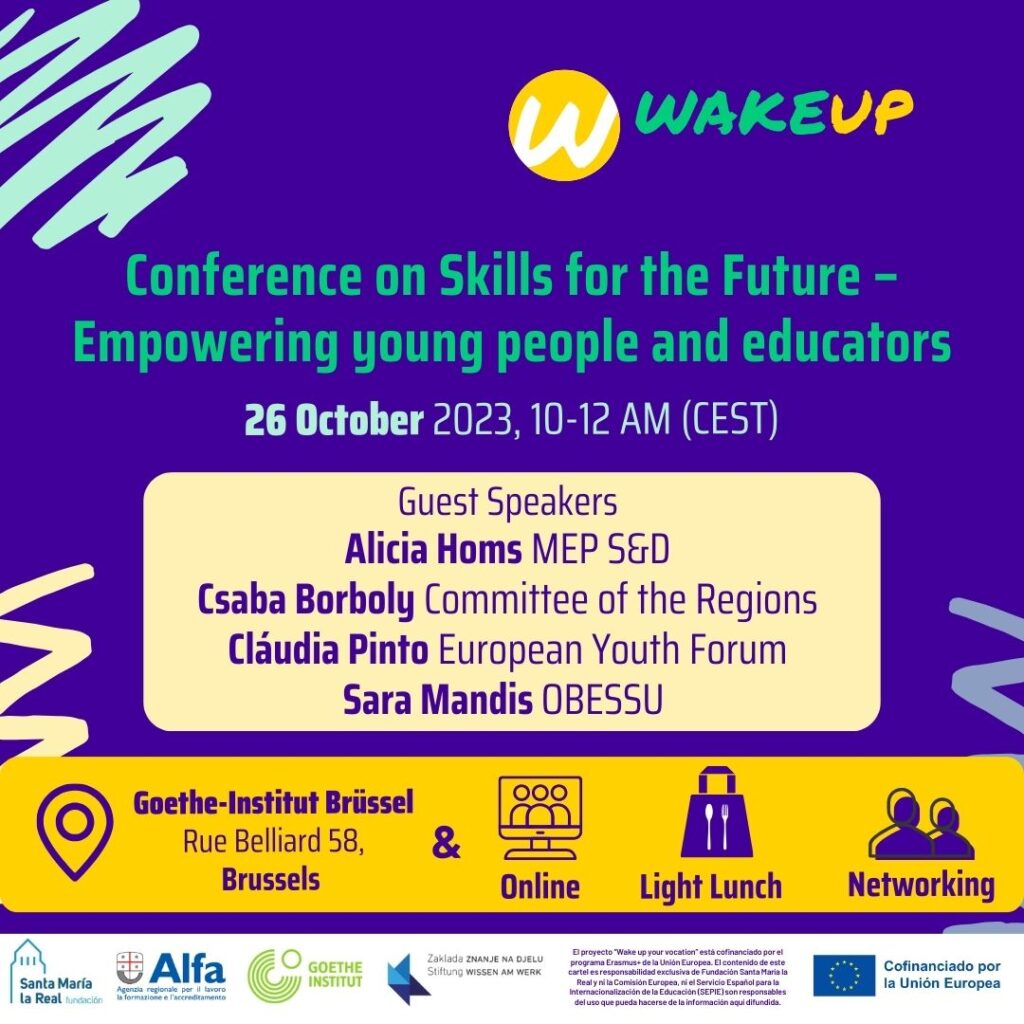
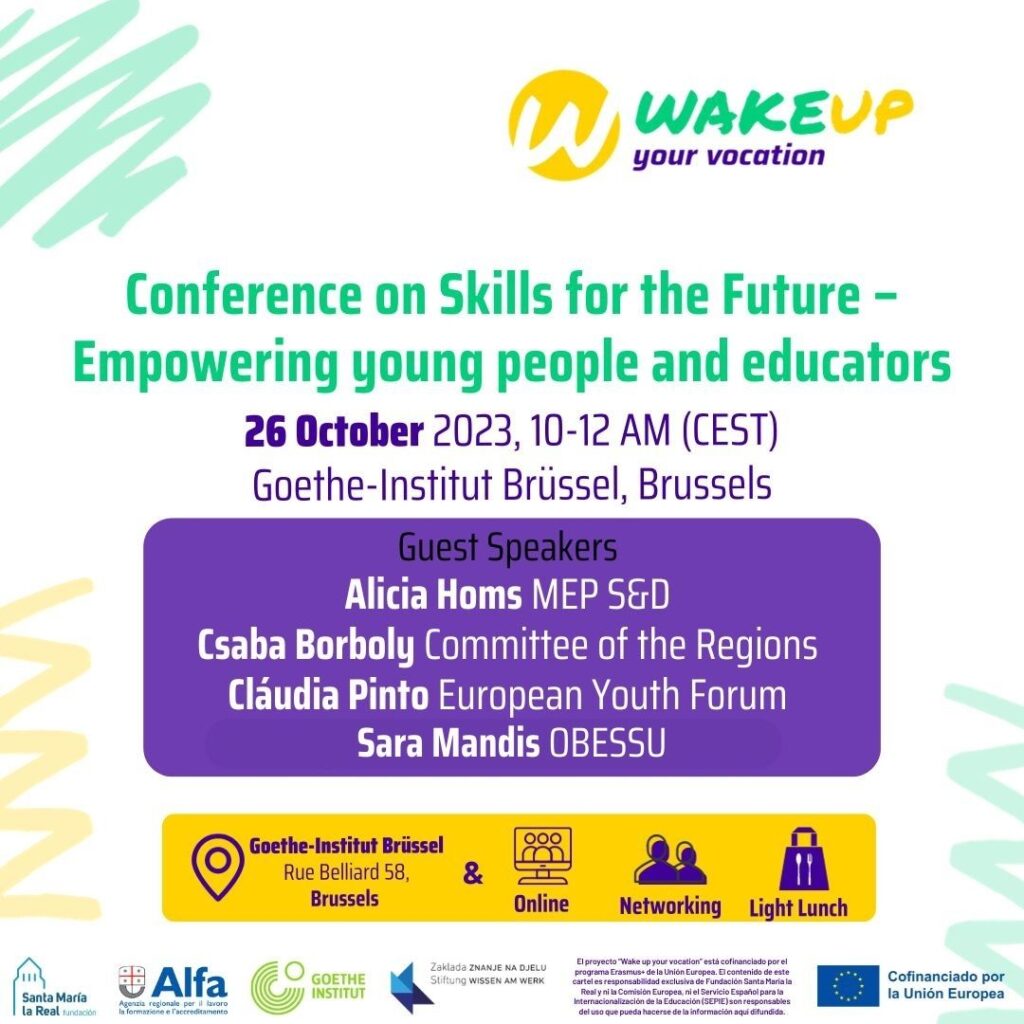
The event concluded with a practical session that showed useful and current tools to help students design their academic and career path, good practices in career guidance and how to adapt to the digital challenge. In addition, the most optimal resources to find out which are the emerging jobs that interest your students today were shown.
Digital, equal and sustainable Europe
Promoting the collaborative work of young people through the development of intercultural skills and critical thinking is one of the objectives of this European project, which encourages teachers to form an active working group with their pupils and to assume their role as part of the engine that will lead to a digital, equal and sustainable Europe in the coming decades.
In addition, it seeks to make both students and their families aware of the reality of the job market in Europe, the new skills demanded in digitalized sectors and that support sustainability, as well as the academic or professional training options available to them. In this sense, it will bring students and the private sector closer to generate a better understanding and connection of their realities, especially in rural areas, and will promote social inclusion through equality, the promotion of digitization and environmental challenges.
About the Erasmus+ program
Erasmus+ 2021-2027 is the renewed program of the European Union in the fields of education and training, youth and sport, which offers opportunities for all people and in all educational sectors (School Education, Vocational Training, Higher Education and Education of Adult Persons).
This new Erasmus+ is more international, more inclusive, more digital and more ecological, supporting digital transformation, inclusion and diversity, as well as the environment and the fight against climate change. With a budget of more than 28,000 million euros, mobility and cross-border cooperation projects related to learning will be financed for 10 million people of all ages and from all origins.
In Spain, the Erasmus+ program is managed by the Spanish Service for the Internationalization of Education (SEPIE), a public body attached to the Ministry of Universities that acts as the National Agency for the program in the fields of education and training.

